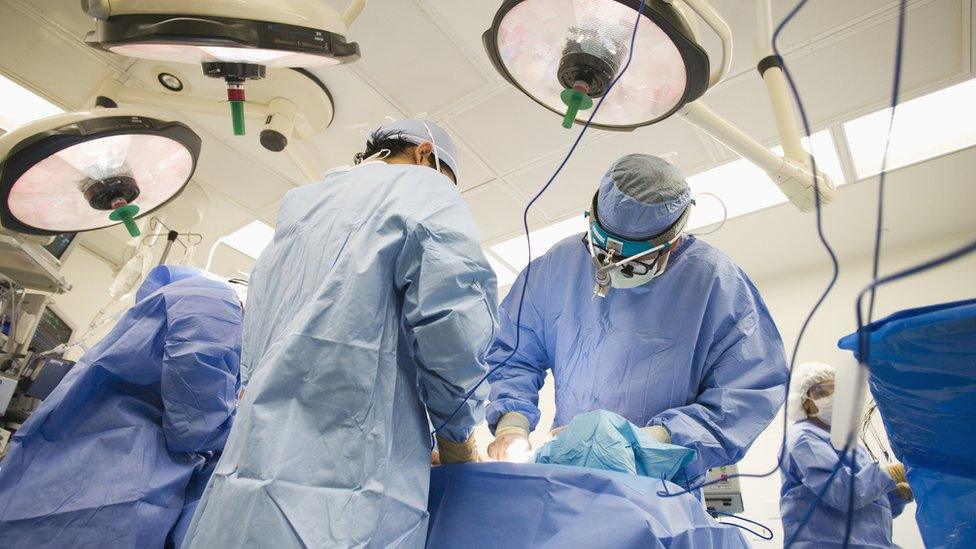Colchester surgery centre to double hip and knee operations - claim
- Published
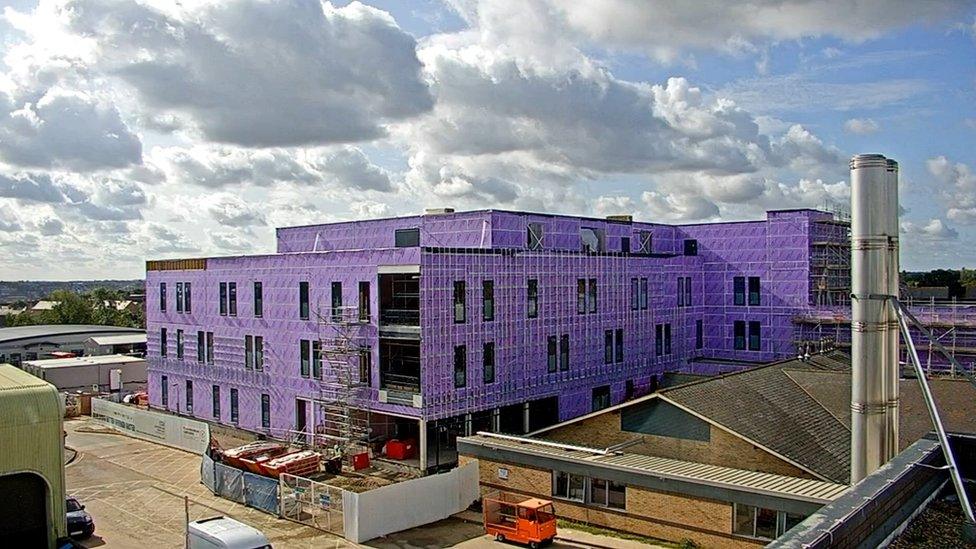
The new surgical centre will create 72 new beds but the idea is that patients won't stay as long
More than seven million people in England are currently waiting for routine treatment or operations. Colchester Hospital in Essex claims it is building one of the biggest surgery centres in Europe. Those involved explain how it could more than double the number of operations they perform.
The building will be one of 20 across England with a combined cost of £1.5bn. The NHS hopes the extra beds can keep operations going, even in the winter when surgery has been previously cancelled for up to three months of the year.
More than 11,000 people are waiting for joint and bone operations in the area served by the East Suffolk and North Essex NHS Foundation Trust, which runs Colchester Hospital. Of those people, more than 1,300 have waited more than a year.
'The NHS is reliant on capacity in the private sector'
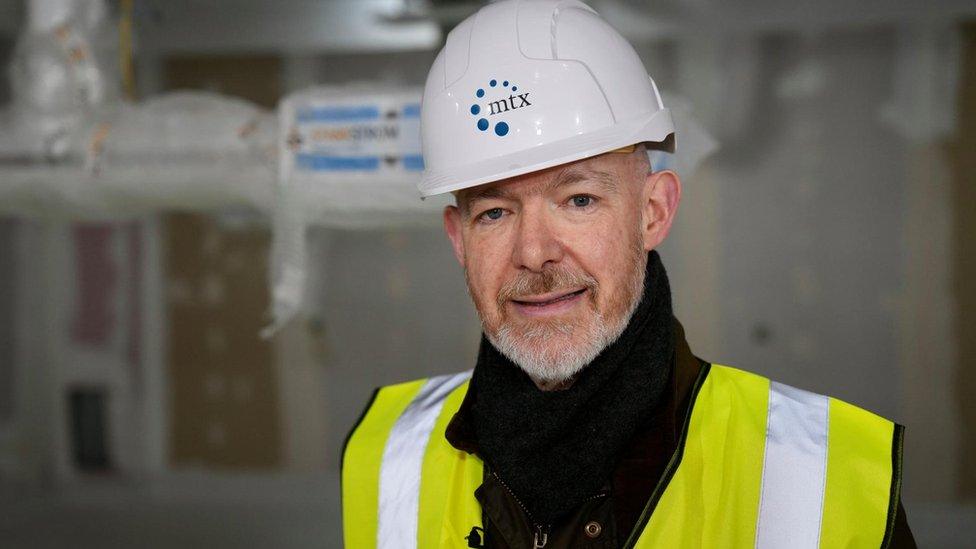
Clinical director Andrew Dunn says it's hoped the number of orthopaedic operations could rise from 4,500 to up to 10,500 a year.
Andrew Dunn is the clinical director at the surgery centre.
"The large majority of our rooms are single, en-suite," he says.
"We've got some other wards with multiple beds in, and this is because that's what patients wanted. They wanted some company."
According to data from NHS England, external, the largest single waiting list is for trauma and orthopaedics. This centre will ring-fence beds for operations like hip and knee replacements.
The building, which is due to open in the summer of 2024, will have eight operating theatres.
"They're larger than the existing operating theatres and have been designed to enable our teams to deliver really high quality, efficient surgery," Mr Dunn, the centre's clinical director, says.
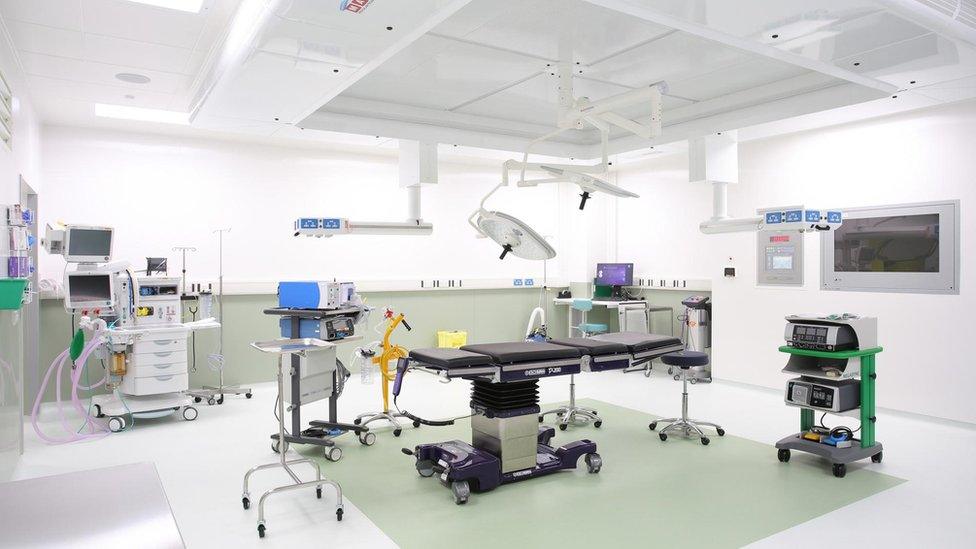
The theatres will enable space for increasingly complex equipment needed for orthopaedic operations
According to to the National Joint Registry annual report (2023), external, provision by the independent sector has increased hugely since 2007, particularly in the years after the pandemic and there are now more hip replacement surgeries taking place in the private sector than the NHS.
Operations in some NHS hospitals have to be cancelled during the winter months when emergency cases take priority.
"At the moment, the NHS is reliant on capacity in the private sector." says Mr Dunn.
"But as more elective hubs get up and running, then we'll be able to treat those patients in NHS facilities."
'I was on two walking sticks'
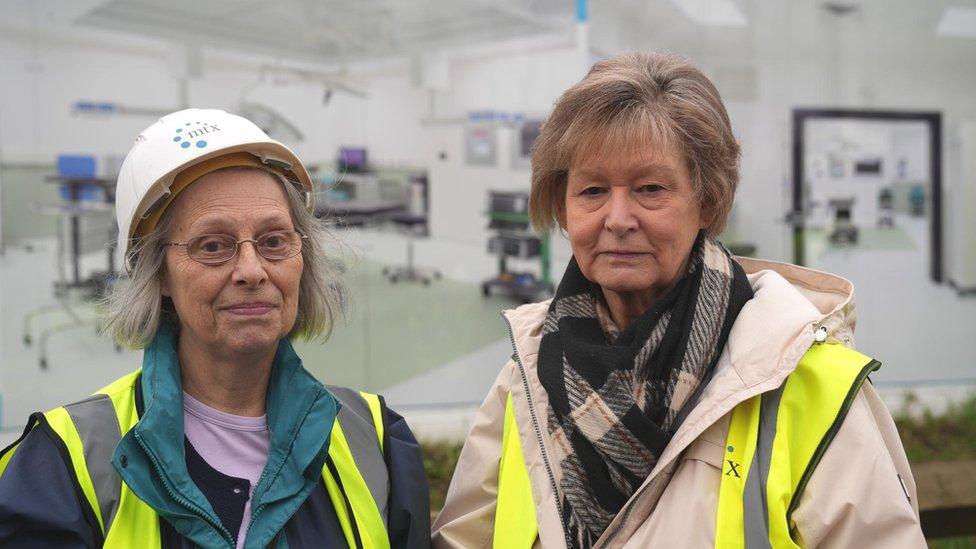
Patients like Lynda Brammer and Sue Hunt have helped to design the new centre
Lynda Brammer, 72, and Sue Hunt belong to a patient group that has worked on the design.
Mrs Brammer has had two hips replaced She waited two years for the first procedure and 10 months for the second.
"You're in pain all the time," she says. "It ages you and it stops you from doing a lot of the things you love to do.
"I'm a gardener and i just couldn't do it. I was on two walking sticks or in a wheelchair and that's just not nice.
"This is what we're doing it for. I'm a new woman."
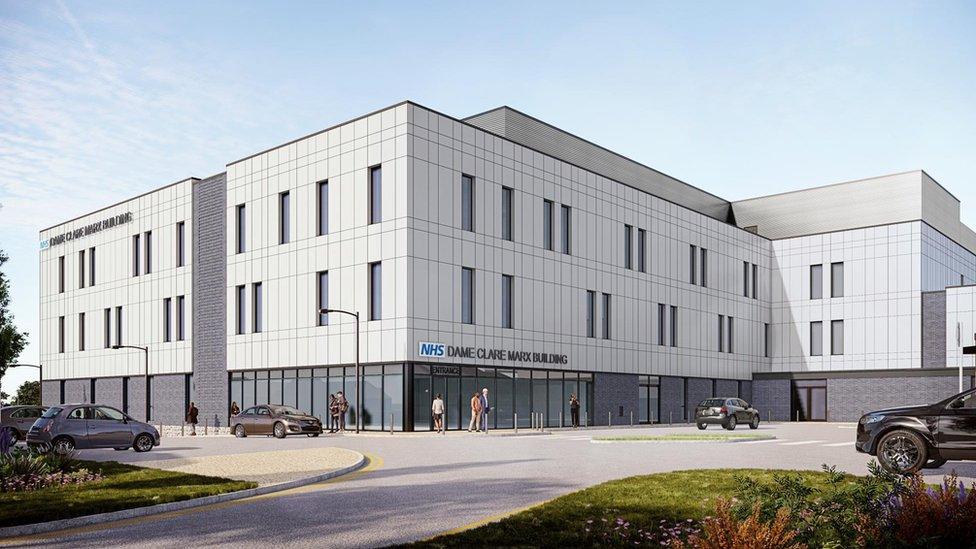
The drop off zone was negotiated by the patient group
Ms Hunt says they helped introduce large windows to every room in order to make patients feel less claustrophobic.
They also pushed for USB charging sockets and a drop-off and pick-up zone, so people do not have to pay to park.
"I think this centre will make a big difference," Ms Hunt says. "At the moment, in the winter, people have accidents and the wards for planned operations have to be used for emergencies, whereas this is a standalone unit so hopefully they'll be no issues with anything like that."
'People will have to move for their care'
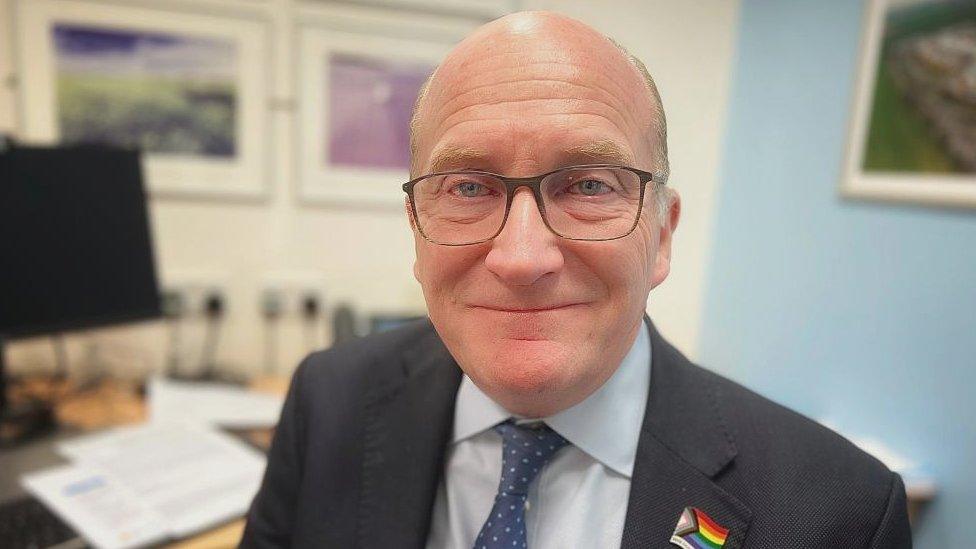
Chief Executive Nick Hulme says the centre could take months off the waiting lists and patients are currently waiting 'too long'.
Nick Hulme, chief executive at the trust, says a key benefit of the new centre will be in bringing specialist staff together.
In the main hospital, staff are spread across wards. But in the surgical hub, there will be physiotherapists and occupational therapists to help people get up and about quickly.
It also means surgeons can do more of the same operations.
"If we provide the right equipment, a newly-built modern environment then it does attract people to come there to work," he says. "It's things they're doing every day so therefore the skills improve."
Patients will come here from across Suffolk and North East Essex but the plan is for them to travel from across the East of England for more complex operations.
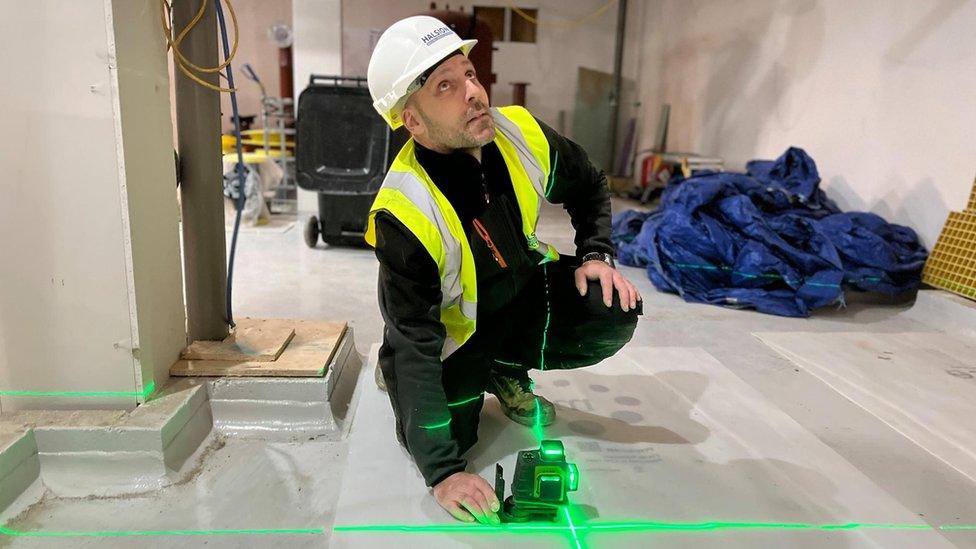
Builders constructed the building off-site using 293 modules
Mr Hulme believes if they have spare beds in the future, they could treat people from outside the catchment area.
According to research by Healthwatch Suffolk, external, 51% of 1,400 people surveyed were willing to travel to another hospital in the East of England to reduce their waiting time.
Mr Hulme thinks it is "difficult" to see a future in which all hospitals continue to provide the broad range of services they currently offer.
"We know that we haven't got that pipeline of the right appropriately skilled and trained staff coming through, almost whatever speciality you look at.
"Patients will have to move for their care if they're able to do so," he says. "But we have to be careful people are not disadvantaged if they do not have their own transport or family to help.
"We have to address that inequality if it happens but I think it's the future of healthcare moving forward."

Follow East of England news on Facebook, external, Instagram, external and X, external. Got a story? Email eastofenglandnews@bbc.co.uk , externalor WhatsApp 0800 169 183
Related topics
- Published1 December 2023
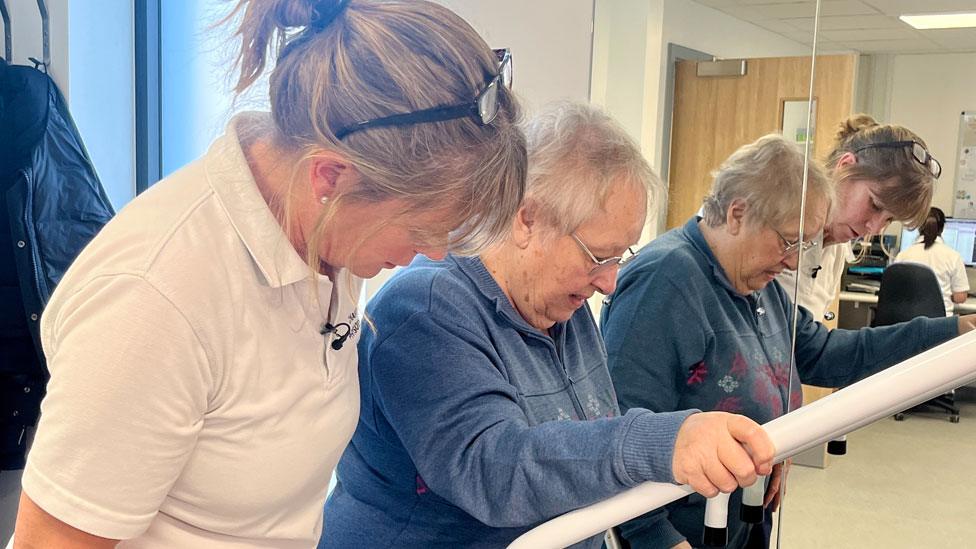
- Published18 February 2020
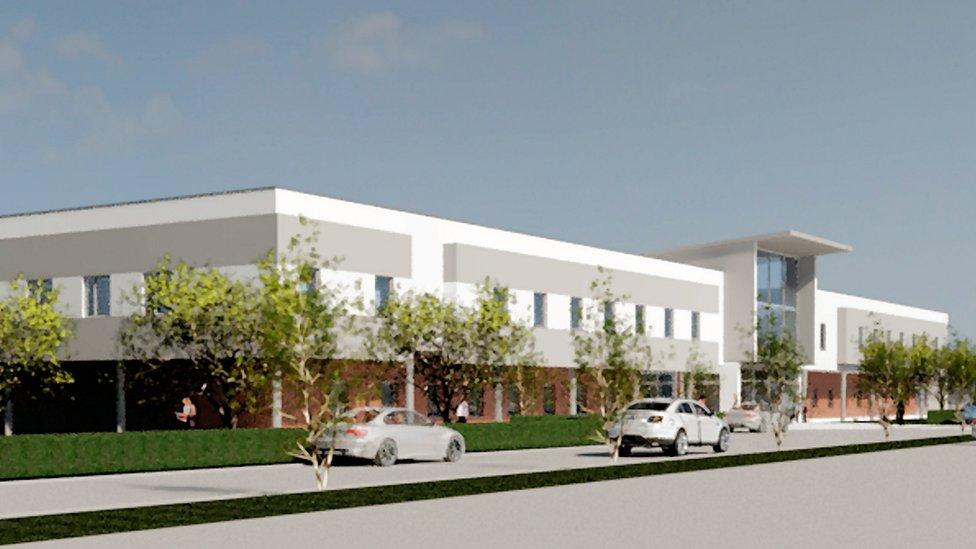
- Published12 October 2023
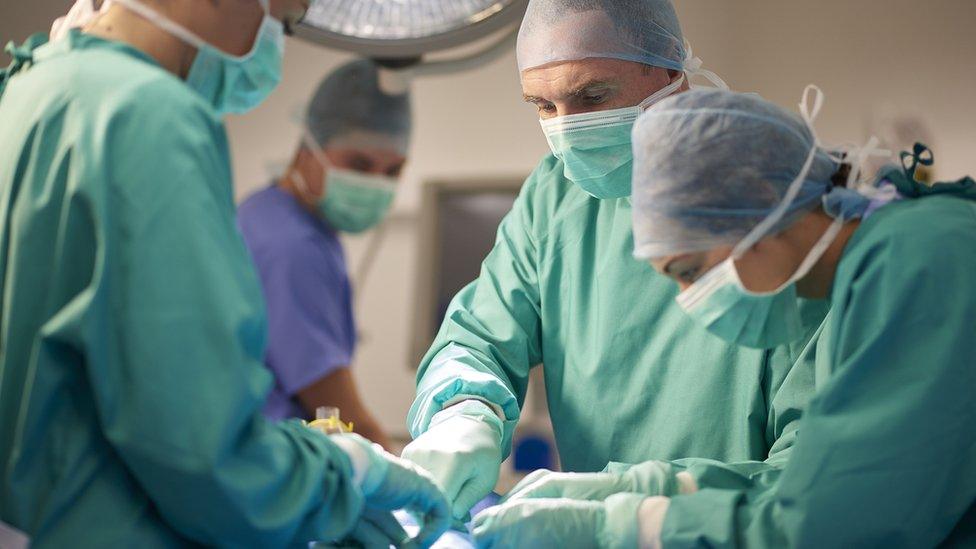
- Published24 May 2023

- Published27 June 2022
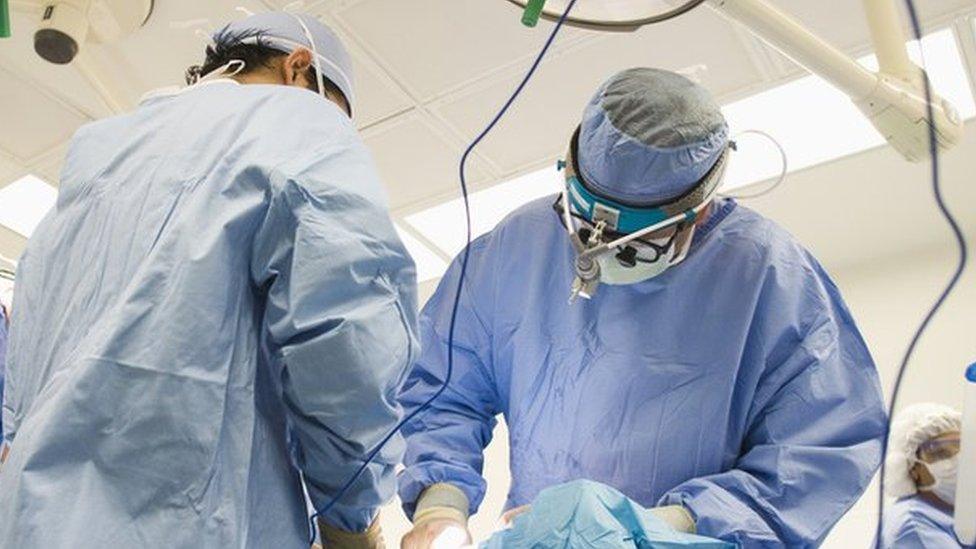
- Published28 May 2021
